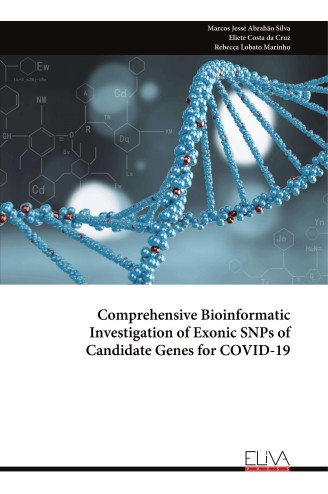
Comprehensive Bioinformatic Investigation of Exonic SNPs of Candidate Genes for COVID-19
$ 42.5
Description
The work highlights the importance of functional characterization of single nucleotide polymorphisms (SNPs) associated with the risk for COVID-19. Using an in silico approach, exonic SNPs with potential functional impact and therapeutic value were identified, contributing to the development of personalized strategies to combat SARS-CoV-2 infection. This study, which uses in silico approaches to characterize exonic SNPs, highlights the importance of genomics in personalized medicine and the development of new therapeutic strategies. SNPs on IFIH1, NOS3, IL-6R, TYK2, EFNA4, PLSCR1, IFNA10, SLC22A31, P2RX7, TLR7, IFNL1 and DDX58 genes were the main SNPs analyzed here, based on a literature search in scientific databases, regarding pathogenicity, structural and functional impacts on proteins and signaling pathways related to the high risk of COVID-19 disease. The investigation of SNPs associated with COVID-19 provides valuable insights into how genetic variations may influence susceptibility and severity of infection. Functional analysis of synonymous and non-synonymous SNPs using advanced bioinformatics tools demonstrated that certain variants, such as sSNPs rs12252 in IFITM3 and rs731236 in VDR, have significant potential to impact mRNA structure and protein function, in addition to the nsSNP rs34536443 of TYK2 predicted to destabilize destabilize abilize the structure but also be capable of deleterious effects on the generated protein. The identification of deleterious SNPs suggests that some variants may predispose individuals to more severe forms of COVID-19, highlighting the need for genetic monitoring in vulnerable populations.



